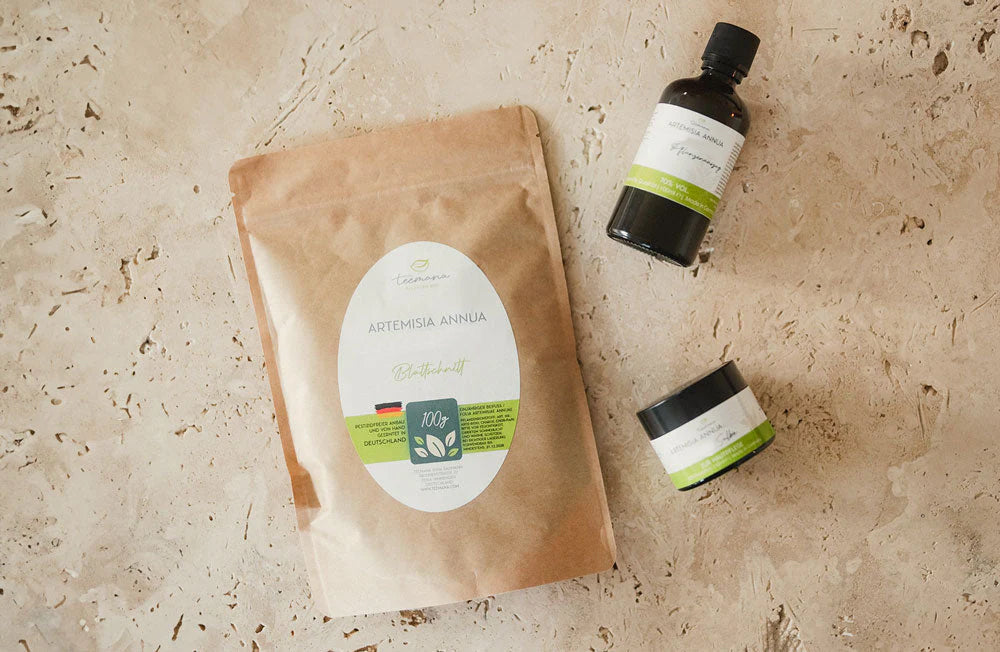
Teemana Packaging: Quality products in environmentally friendly packaging – for a green and sustainable future
|
Lesezeit 1 min
Cart
Your cart is empty
|
Lesezeit 1 min
At teemana, we stand for sustainable, ecological, and responsible business practices— and this is reflected in every step of our production cycle.
From the natural cultivation of our plants, where we rely exclusively on natural pesticides and do not use any mineral fertilizers, to climate-neutral shipping for all your orders – we remain true to our values of sustainability and tradition in all our actions. Because it is our highest principle to conserve the resources of our God-given planet and thus contribute to the healing of our earth.
Of course, we also follow this principle in our packaging, which we base on the so-called zero-waste principle . But what exactly is the zero-waste principle? And how do we support environmentally friendly practices with our packaging—both that of our herbal products and that of our ointment? You'll learn all about it in this article.
Contents:
ZERO Waste literally means "zero waste" or "zero waste." It is a philosophy or way of life that aims to produce as little waste as possible—or, ideally, none at all. The central idea behind it is to conserve environmental resources by considering the entire life cycle of a product— just as we do with our packaging.
The ZERO-Waste principle includes the following points:
